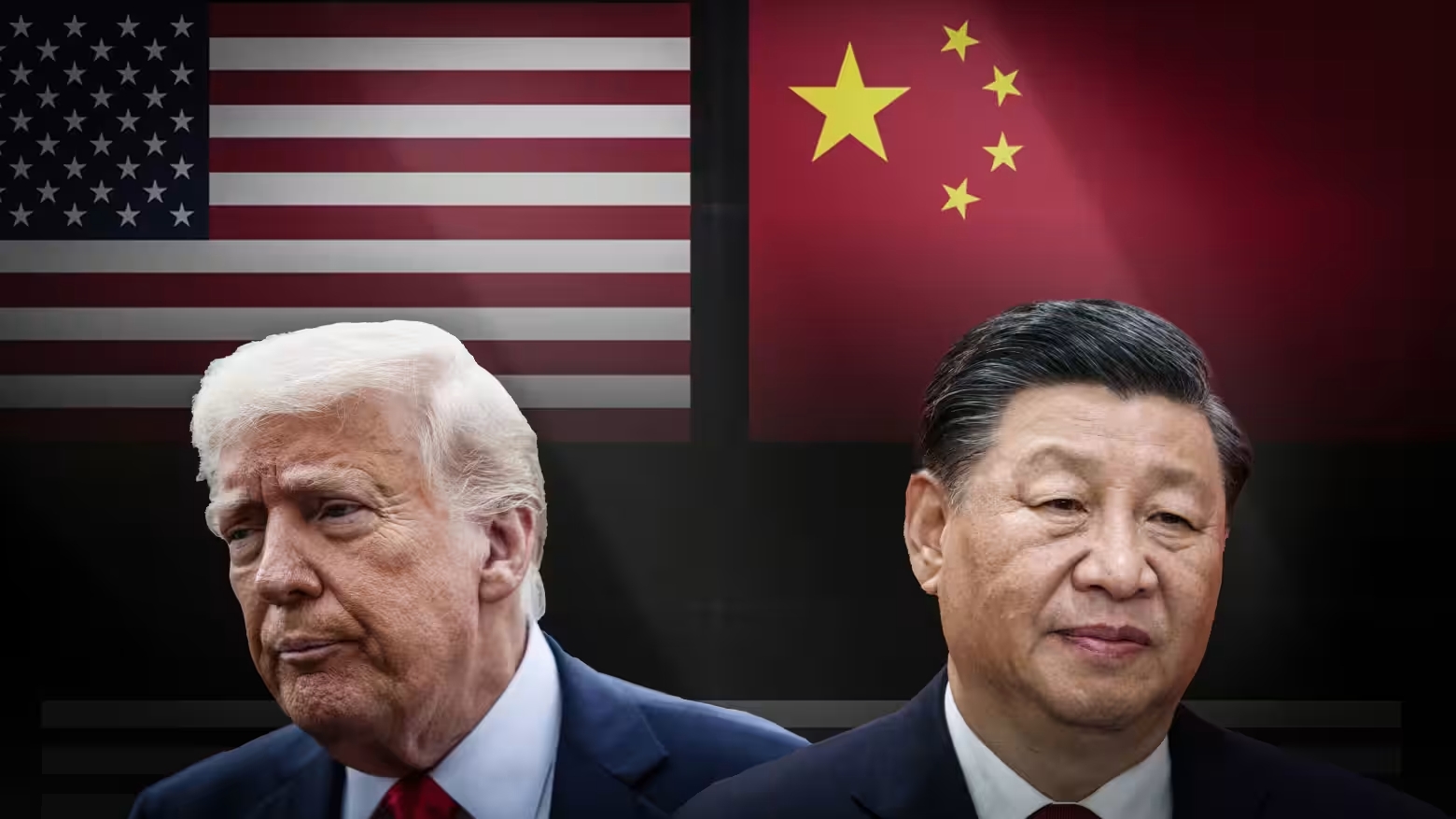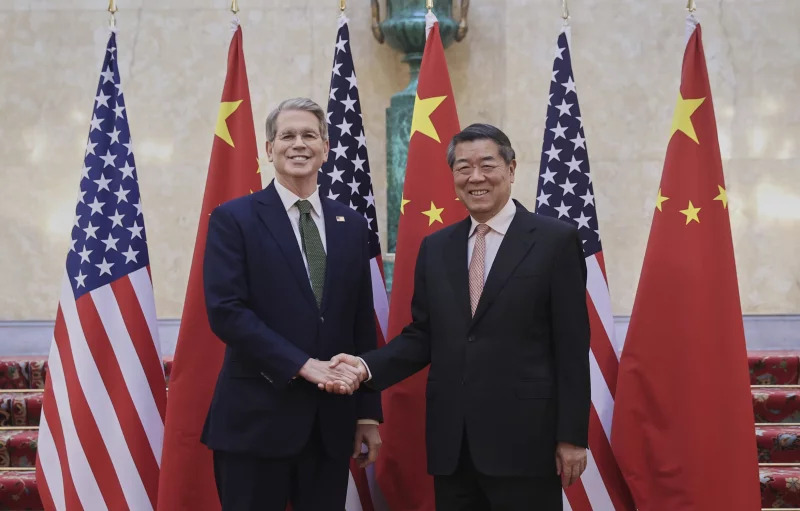Given the fact that most disruptions in the bilateral relationship originate in Washington, it is essential that the Trump administration apply the consensus reached during the call to its future actions.

President Xi Jinping of China and his U.S. counterpart, Donald Trump, spoke by phone on June 5 — their first call since Trump’s second term began in January. It was part of an effort to bridge differences and solve problems and was conducive to clearing obstacles and setting the direction for the future development of China-U.S. ties.
Historically, most obstructions in bilateral relations have been caused by the United States. The first Trump administration provoked strategic competition with China in 2017 and started a trade war the following year. The second Trump administration has once again launched a trade war against China, which took a responsible approach and engaged in trade talks with the U.S. in Geneva. They reached important points of agreement and China has implemented those rigorously. Nonetheless, the U.S. has been undermining the Geneva agreement by successively introducing multiple sanctions against China — from issuing AI chip export control guidelines to stopping the sale of chip design software and revoking the visas of Chinese students. These petty moves reveal that the U.S. has fallen short of sincerity in fulfilling its Geneva promises.
In fact, the Trump administration has adopted a malicious negotiating strategy, which means it uses its dominant power to pressure the other parties or to deliberately ruin outcomes for the sake of profit.
As for bilateral relations, China has demonstrated sincerity while adhering to principles. As always, Beijing believes that both sides stand to gain from cooperation and lose from confrontation, and it is therefore committed to enhancing communication, properly managing differences and expanding mutually beneficial cooperation. On issues that do not involve matters of principle, Beijing makes every effort to accommodate U.S. concerns and strive for win-win outcomes through dialogue and consultation.
The Geneva talks and the recent phone call were initiated by Washington, and Beijing responded positively to each. It has since canceled or halted its countertariffs against Trump’s prohibitive levies, showing the utmost sincerity and desire to maintain the outcomes of the trade talks. In addition, to address Washington’s concerns about rare earth elements, Beijing has simplified its export procedures on those under long-established international practice.
Trump expressed satisfaction with the phone conversation, saying the U.S. welcomes China’s robust economic growth, is willing to continue negotiating with China and that Chinese students are welcome to study in the U.S.
China also has its own principles in tackling its relations with the U.S. Xi highlighted mutual respect, peaceful coexistence and win-win cooperation as the three overarching principles in the development of bilateral ties in the new era, laying a solid foundation for the two sides to effectively manage differences and advance mutually beneficial cooperation. When it comes to specific trade and economic issues, China adheres to the principle that differences should be resolved through dialogue and consultation and firmly opposes the U.S. use of threats or coercive measures. Facing America’s unilateral sanctions and tariffs, China put powerful countermeasures in place.
The Taiwan question, which touches on China’s sovereignty and territorial integrity, remains the first red line that must not be crossed. While the phone call generally revolved around trade, Xi underlined again that the U.S. should handle the Taiwan question with caution and prevent a few separatists seeking Taiwan independence from dragging the two nations into an abyss of confrontation and conflict. This was a solemn reminder, and Trump responded that the U.S. would continue to honor the “One-China” policy.

Chinese Vice Premier He Lifeng (right) shakes hands with U.S. Treasury Secretary Scott Bessent before their meeting to discuss China-U.S. trade, in London on Monday, June 9, 2025. (Photo: Li Ying/Xinhua)
Moreover, the phone call once again highlighted that head-of-state diplomacy can play a key strategic role in stabilizing and advancing China-U.S. ties. Like a huge ship sailing in the sea, relations are subject to interference of various kinds, and the top leaders of both nations are needed to steer in a timely manner. The conversation helped stop bilateral ties from deteriorating further and clarified ambiguities left over from the Geneva talks. And it paved the way for a new round of talks.
China has centralized leadership under the Communist Party and the institutional strength to pool resources to accomplish major objectives. This ensures highly efficient decision-making and strong policy continuity, which enhance stability and remain robust when facing challenges posed by the United States. In contrast, U.S. decision-making institutions are rather fragmented, so its policies are susceptible to a range of variables introduced by the White House, Congress, interest groups and electoral politics.
For instance, White House Trade Adviser Peter Navarro, Treasury Secretary Scott Bessent, Secretary of State Marco Rubio and others have all tried to influence Trump on trade relations, as well as on people-to-people exchanges with China. In fact, Trump has expressed high expectations for a trade agreement with China. His positive remarks about the phone call could also help Washington avoid interference that has roiled bilateral ties. Trump appointed Bessent to lead the new round of negotiations in London and asked Commerce Secretary Howard Lutnick and U.S. Trade Representative Jamieson Greer to attend. This arrangement stands to enrich and smooth bilateral communication in areas such as trade, finance and export controls.
China and the U.S. have extensive common interests and cooperation potential. In recent months, Jensen Huang, president and CEO of Nvidia; Jamie Dimon, chairman and CEO of JPMorgan Chase; Evan Greenberg, executive vice chair of the National Committee on United States-China Relations; and other important figures visited China, playing a positive role in fostering the healthy development of China-U.S. ties. The Trump administration needs to listen to their opinions.
The recent phone conversation was another major effort by both sides to mend their frayed relationship. Beijing will, as always, promote the steady, sound and sustainable development of China-U.S. ties with utmost sincerity. Given that most interference comes from Washington, it is essential that the Trump administration apply the consensus reached during the call to its future actions to prevent bilateral ties from lapsing once again into a downward spiral.
